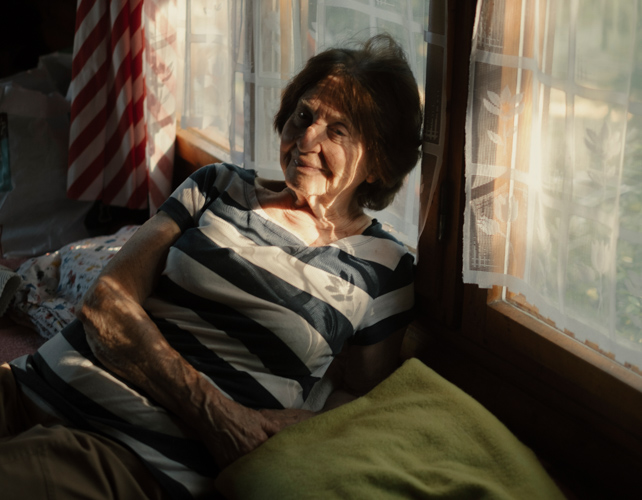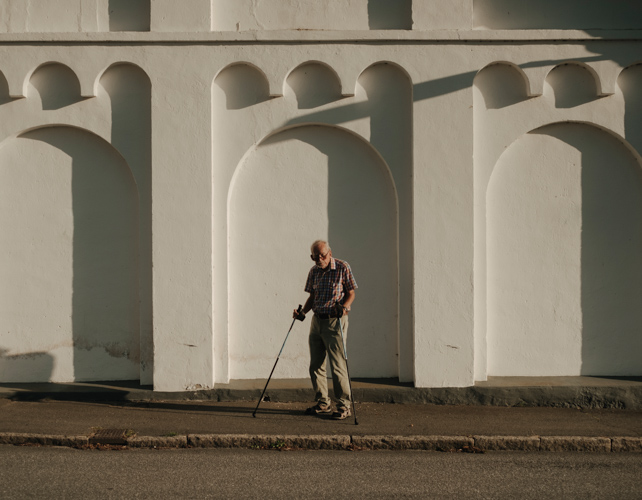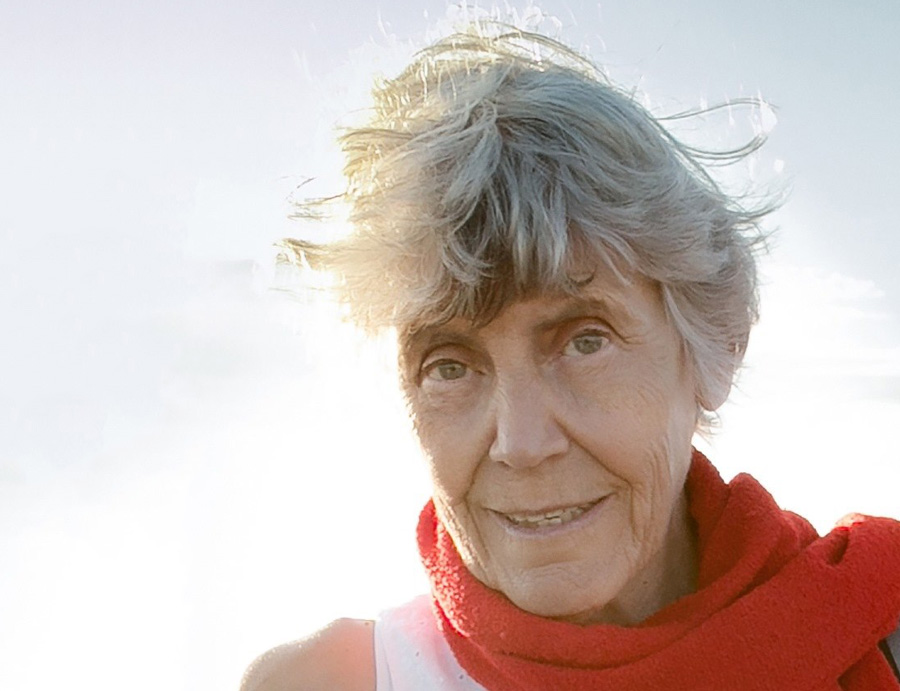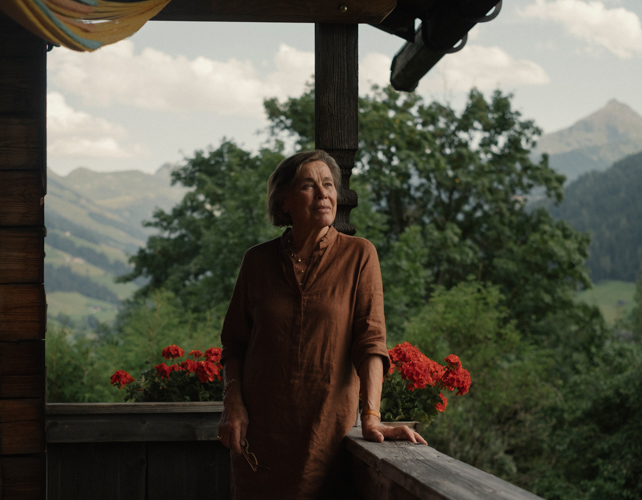Eva Mosnáková is a Slovakian Holocaust survivor and renowned educationalist.
She was born in 1929 in Brno into the mixed marriage of her Jewish father, a veterinarian, and her Christian mother, and spent her childhood in Handlová.
After Slovakia was occupied by Germany, her family was threatened due their Jewish descent, and went into hiding. At the height of oppression, she was rescued by the Sudeten German Heinrich Konrád and his wife Terézia née Mosnáková. She also met her future husband, Vlado Mosnák, whilst living with her family of rescuers. Vlado, who was an active member of the resistance, was arrested by the Gestapo at the beginning of 1945 and deported to the concentration camp Mauthausen. He survived, and he and Eva married after the end of the war.
After completing distance learning at the University of Economics, Eva Mosnáková worked at the Ministry of Agriculture in Bratislava. She always stood up for what she believed in. Despite the discrimination she was to face at her workplace, she was openly committed against the occupation of Czechoslovakia in 1968.
Today, Eva Mosnáková supports Holocaust victims aid, is the head of the senior club of the Jewish community in Bratislava, and continues to hold lectures at schools about her survival. She turned 90 in December 2019.
In his conversation with Michal Hvorecký, she retells her family’s extraordinary story of escape and survival.

Eva Mosnáková was interviewed by the Slovakian author Michal Hvorecký.
Interview Highlights
On language
Hvorecký: What language did you speak at home?
Mosnáková: My father studied at the Hungarian Piarist Grammar School in Nitra. He spoke Hungarian very well and his family too. His mother died of cancer aged only 32. His father died during the First World War of tuberculosis. My pa was scared he would fall ill too but he lived to the age of seventy. My mother spoke Czechoslovak, she mixed the two languages. I used to read a lot and my language was Slovak. My father knew German quite well, too, especially from books. It was a secret language among Jews spoken so that children didn’t understand everything said between their parents. When he was celebrating his seventieth birthday, he recited Goethe’s Faust by heart. I learned German only from books, but I can communicate in it.
How the rise of fascism manifested itself in Handlová (Slovakia)
Mosnáková: (my parents) were very conscientious to make sure that I had a peaceful and safe childhood. My father had sensed the threat of upcoming war since 1932. He saw young Germans from Handlová going to Germany and learning the violent methods of fascism even though they claimed they’re devoting themselves to Physical Education.
Hvorecký: How did the development manifest in Handlová?
Mosnáková: Fascists used to assemble on the square. Right beneath our windows. I thought it was a theatre performance when I was little. They were giving speeches, playing brass music. Germans were marching and saluting more and more often. One day I noticed my favourite teacher was among them. I felt deeply disappointed. In Handlová the development escalated faster than elsewhere in the republic.
How life changed after the Munich Agreement of 1938
March 15th was a sad, bleak day of the occupation of Czechia. My aunt cried all day long. German soldiers were coming in big numbers. I didn’t go to school. From the first day Nazis were incarcerating antifascists, but not only them – it was enough to be a member of Sokol to get arrested. Universities were closed and boarding schools were turned into prisons. Mothers and wives who believed they would at least get to see their relatives behind barred windows were walking along prisons. They didn’t know their relatives were forbidden from approaching the windows, or the guard would shoot them immediately. Even our neighbour, a grammar-school teacher, was arrested and sent to Dachau.
The family’s decision to go into hiding
Mosnáková: After the breakthrough of the Slovak National Uprising in 1944) any exceptions (for specific jews) ceased to be valid. My father became a mere Jew, mom was his wife and I was a crossbred. Fortunately, my father made friends with a neighbouring German who was called Henrich Konrád. He was from Moravian Uničov. He and his cousins owned arable machinery, a threshing machine and a tractor. They came to the region to work on the field. They rented the Laciház farm near Močenok. There Henrich Konrád met Terézia Mosnáková, they fell in love and got married. They rented a part of the farmyard. My father treated their animals and they became friends. Konrád learned Slovak. Already in 1942, my father asked him to hide us if the situation worsened. And Konrád agreed!
Hvorecký: How do you understand the situation?
Mosnáková: It was an extremely risky decision. He took on the risk of a death sentence. I think he was strongly moved by the sight of children being taken to transports (to concentration camps). He knew many of them. He couldn’t come to terms with it. It was an act of extraordinary courage.
[….]
Mosnáková: In November 1944 an SS member Karol Zimmerman, a Jew hunter, arrived in Močenok. Originally, he was a Slovak soldier, but he joined the SS. He was active in the concentration camp of Sereď. Fortunately, I only saw his face recently in a historical book about camps. If I had seen him in person, I would have been dead. He came to the town to hunt for hidden Jews. He lived in the house of the organist whose daughter was my best friend. It shocked me that they accepted and hosted him. Zimmermann spread his nets immediately, he got in touch with local informers. He quickly found a Jew who was hiding alone. He tortured him cruelly until he coaxed what he needed out of him. I don’t judge him, but I admire my husband the more as he wasn’t broken even by torture. Soon, Zimmermann got everyone except for us.
Her support of the Slovak Jewish community today
I have never longed for freedom because I am, I think, the freest person in the world. I used to complain about Ceaușescu while waiting in queues: I never disguised what I was doing, but nothing happened to me. But don’t think that I was protected from the troubles of the communist regime. I had two terrible experiences during the regime, but I have always remained a free person. I love freedom more than anything. I can’t even imagine that you can’t be free. […] I’m afraid of technology and the advance that people get out of it when compared to how they naturally are. We have to do this to defend ourselves against coronavirus, but we don’t always succeed as you can see.



